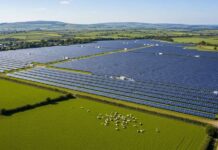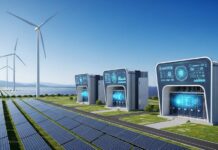During the EU-CELAC Summit in Brussels, the European Union (EU) and Argentina have taken a significant stride in their energy collaboration by signing a Memorandum of Understanding (MoU). This agreement, inked by European Commission President Ursula von der Leyen and Argentine Republic President Alberto Fernández, outlines crucial cooperative domains, including renewable energy, hydrogen utilization, and the reduction of methane emissions. The MoU also underscores the imperative of a socially equitable transition towards clean energy.
Ursula von der Leyen, President of the European Commission, emphasized the partnership’s commitment to a secure, sustainable, and prosperous global landscape. She highlighted that energy cooperation holds great potential for a fair and clean transition on both continents. The signed MoU acts as a guiding framework for their collaborative efforts, aligning with the EU’s Global Gateway Investment Agenda and bolstering their climate and energy objectives.
The MoU delineates the EU and Argentina’s joint endeavors to advance renewable energy, energy efficiency, and hydrogen applications, encompassing areas like industrial processes, transportation, and energy storage. This enhanced energy collaboration aims to expedite the transition to cleaner energy sources, stimulate local value creation, and contribute to sustainable economic growth.
The two parties have also committed to minimizing methane leakages within the fossil gas supply chain, utilizing feasible technologies to reduce venting and flaring. They will incorporate recovered methane into the supply chain to enhance efficiency and reduce harmful emissions, ultimately aiding climate targets and bolstering energy security.
Moreover, the Memorandum underscores the necessity of aligning future investments with environmental regulations from both sides, while considering concerns about biodiversity and water systems. It underscores the significance of an equitable energy transition that takes into account the interests of local communities.
This initiative builds upon the existing energy dialogue between the EU and Argentina, encompassing renewable energy, energy efficiency, hydrogen, and natural gas. The cooperation is rooted in prior declarations, initiatives, and agreements, reflecting a commitment to trade and economic cooperation dating back to 1990.
Renewable energy collaboration falls under the broader European Union – Latin America and the Caribbean Global Gateway Investment Agenda, aimed at fostering an equitable transition towards green and digital domains. The initiative outlines over 130 projects across Latin America and the Caribbean that focus on sustainable growth in areas such as health, digital connectivity, renewable energy, critical raw materials, research, and innovation. This agenda will be carried out through Team Europe initiatives, where various public sources of funding will collaborate with the private sector to realize its objectives.
































